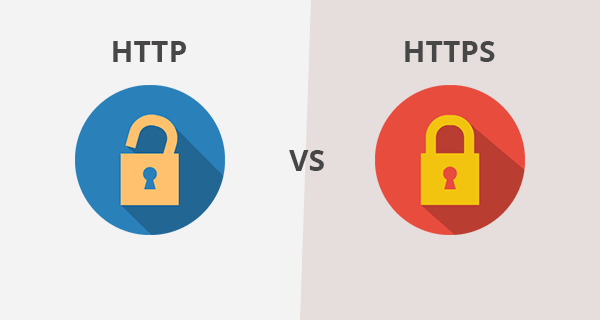Last Updated on by Azib Yaqoob
Which protocol should you use between HTTP vs HTTPS? It is no secret that secure websites have a good chance of ranking higher in search.
However, you can use HTTP as well in some cases. Like when you don’t ask users to submit private information through contact forms.
We will dig deeper into HTTP and HTTPS and how they could impact SEO.
As a small business, you should know the difference between HTTP and HTTPS to use protocols according to your site needs.
It is important to learn why Google favors HTTPS over HTTP. But before we choose between the two protocols, let’s see each protocol’s use cases.
What is HTTP?
![]()
Simply put, it is a process to encode information and transport it between a web browser and a web server. To transmit data across the Internet, HTTP is a primary protocol. When a user opens their Internet browser, they use HTTP.
What is HTTPS?
![]()
On the other hand, HTTPS is a ‘secured’ extension of HTTP.
It establishes the connection to the website server over the same TCP/IP protocols. However, it adds an extra Secure Sockets Layer (SSL) to transfer data over the servers in encrypted form safely.
HTTPS makes websites more secure. It was intended to be used by banking websites, online stores, and sites where users share private information.
HTTPS Privilege
HTTPS or ‘secured HTTP’ main element is securely transmitting data. Every website with authorization, such as email clients, social media, online transactions, and eCommerce checkouts, always uses HTTPS.
The main benefit of using HTTPS is encryption. HTTPS encrypts data before transmitting it. This data cannot be modified or corrupted during transmission.
Most browsers these days indicate secure/unsecured websites in the address bar. Any website using HTTPS is considered secure, and if it’s using HTTP, the browser will display it in the address bar.
Since Google emphasizes better user experience, therefore the obvious choice is to make your website secure for users. It will also improve your brand reputation.
SEO benefit of switching to HTTPS

The most obvious reason for switching to HTTPS is ‘security.’ After all, we appreciate having our site appear secure in the browser. But apart from security, there are a couple more reasons to consider switching to HTTPS to reinforce your site rankings.
Boost SERP ranking
With Google’s announcement to give a slight bump to HTTPS sites, it can lead to a persistent boost as secured sites receive more web traffic. It assures the user that the site they are visiting is safe.
Referrer data
Using a simple HTTP site will not preserve the secured data of referrer sources in Google analytics. Instead, they will appear just as ‘direct traffic’.
Privacy and Security
HTTPS helps with encrypted data, like storing passwords or credit card information that is not at the disposal of an intrusion. Additionally, the user builds confidence and trust with your site, knowing that their browsing history is safe and any information they enter is not at risk. Secure websites potentially result in better conversion rates. HTTPS also prevents interference by third parties.
SEO concerns with HTTPS Migration
While the switch to HTTPS is worth it, there are some concerns that you should keep in mind while switching from HTTP to HTTPS.
Add HTTPS property to Google Search Console. If you are using HTTPS, you must add your website property to Google Search Console.
Additional certificates. It’s not only just an SSL certificate that you need. There are a couple of other credentials necessary for the purpose. These include:
1. Single Domain certificate, issued for one domain or subdomain.
2. Multiple Domain certificates, also known as a Unified Communications certificate, enable securing a primary domain name and upwards of 99 additional Subject Alternative Names.
3. Wildcard certificate secure website URL as well as unlimited subdomains.
Allow Google to crawl up your website. If Google cannot do so using robots.txt for the purpose, this could seriously jeopardize your site ranking. Therefore, you must update your test server to allow bots to crawl up your website.
Smooth transition. You must analyze the switching process from HTTP to HTTPS via Google Search Console to make sure everything goes smoothly. When Search Console report issues, fix them quickly.
When Transferring from HTTP to HTTPS make sure to do it safely. If you don’t know how then hire a professional. Make sure you test every link and if everything works properly. A poor user experience might impact your site rankings.

